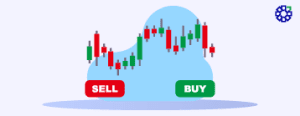What are Derivatives?
- 1st July 2025
- 8 min read
In the world of finance, derivatives play a crucial role in managing risk and enhancing investment strategies. A derivative is a financial instrument whose value is derived from the performance of an underlying asset, such as stocks, bonds, commodities, currencies, interest rates, or market indexes.
These instruments are widely used by investors, traders, and institutions to hedge risks, speculate on market movements, or gain access to assets without directly owning them. This article explores what derivatives are and how they work.
Definition of Derivatives
Derivatives are financial instruments whose value is based on an underlying asset or group of assets. These assets can include stocks, bonds, commodities, interest rates, currencies, or market indices. Rather than owning the asset itself, investors enter into contracts that derive their value from the asset’s future price movements.
Derivatives are commonly used for hedging risk, speculating on market trends, or gaining access to specific markets. For example, a farmer might use a derivative to lock in the future price of crops, protecting against market fluctuations. Similarly, traders may use derivatives to profit from price changes without owning the asset.
There are various types of derivatives, such as futures, options, forwards, and swaps. These contracts are traded either on regulated exchanges or over-the-counter (OTC), depending on their structure and the needs of the investors involved.
Different Types of Derivatives to Choose From
Now that you have an idea about the derivatives’ meaning, you must have an idea of how many types of such investment options are available to make an informed decision:
-
Future
Organised stock exchanges trade in these types of investment options. Here, sellers offer underlying assets, like currencies, commodities or other financial instruments. The sellers offer such assets at predetermined price tags to sell on a future date. Although setting it at a predetermined price, its ultimate value depends on the performance of the assets.
-
Options
If you opt for options trading, you have the right to call or purchase and put or sell off underlying assets at a predetermined price tag within a predetermined time. Although you have the right to take a “call” or “put” action, there is no obligation to execute an option. However, when trading in options in the international market, such as in the American markets, you can exercise options anytime before their expiry. In the European market, you must exercise them only on the expiry date.
-
Swaps
Swaps in another form of derivatives in trading or investment, and they are not available in stock exchanges, but traded over the counter. Swaps are private agreements, and investors use this instrument to exchange a type of cash flow between two parties. Common forms of swaps include interest rate swaps and currency swaps.
-
Forwards
Forwards are another form of derivatives trading and are also not traded across exchanges. They are available over the counter and are similar to futures. It is a personalised contract between buyers and sellers to purchase and sell underlying assets at a predetermined price in the future. It is efficient in lowering investment risk and suitable for hedging.
Which Individuals Participate in the Derivatives Market?
Apart from understanding what derivatives are, it is important to know which types of investors usually invest in such an investment vehicle. Below is the list of investor types that prefer it:
-
Hedgers
These types of investors usually participate in derivatives trading to mitigate risks in the securities market. They use this investment instrument to protect their investments from unfavourable market movements and secure a stable financial position in the securities market.
-
Stepculators
Unlike the hedgers, this type of investor prefers more risk and trades in the derivatives market to make profits. Speculators make such a profit by purchasing assets when the prices are low. They sell these assets by placing short-term bets on the asset pricing. Thus, based on this bet or speculation, they sell the assets at a higher price and make a profit.
-
Margin Traders
This type of investor invests a marginal value or a minimal amount and participates in the derivatives market with a broker. This deposit enables margin traders to track daily market movements and measure profits or losses. If you opt for margin trading, you can control a larger position in the securities market with a minimal investment.
-
Arbitrageurs
This is another type of investors that participate in the derivatives market. They usually take advantage of the price differentials between the market and assets. As an arbitrageur, you can buy assets at low prices from one market and sell them at a higher price in another market. Thus, you can make a profit from the price differences between markets.
Process to Trade in the Derivatives Market
As there are multiple options and earn profits from a derivative of an underlying asset, you might be curious about how to trade in such an investment vehicle. Take a look at the steps below and begin trading:
- Step 1: To begin with derivatives trading, you first need to open a Demat and a trading account. Most brokers provide an online Demat and trading account together upon applying.
- Step 2: Pay a margin amount to your broker before beginning trades in derivatives. Note that you cannot withdraw this amount until the completion of the trade.
- Step 3: Ensure that you know enough about underlying assets, and also keep your investment budget in mind to meet the financial requirements of such trading.
- Step 4: Ensure not to withdraw your investment amount in assets or from the assets unless your trade is executed or resolved.
What are the Advantages of Derivatives?
This type of investment vehicle is suitable for making a profit, mitigating risks and comes with the following advantages:
- It allows you as an investor to hedge risks, i.e., investing in an asset at a predetermined price and selling it at a predetermined value.
- Trading is a type of investment option that is also cost-effective. Unlike purchasing bonds or stocks, it incurs a lower transactional value.
- It also allows you to invest a marginal value and hold a significant position in the securities market.
- Another advantage of this instrument is price discovery. The derivatives market can predict upcoming price expectations, assisting in informed decision-making to buy or sell securities.
- There are a variety of options to choose from in this type of trading. You can opt for futures, options, swaps, and forwards.
What are the Disadvantages of Derivatives?
Although having advantages, you must take note of some of its disadvantages before opting for this type of trading. The disadvantages are as follows:
- This type of trading is complex and thus makes it difficult to understand, which might lead to wrong investment choices.
- There is a “counterparty risk”, especially in the case of over-the-counter trading. It means a default by one of the parties can lead to losses.
- Over-the-counter trading might not be regulated in some cases, which increases the chances of fraud or manipulation.
- Speculative trading increases price swings that ultimately impact the expected gains or profits of investors.
Conclusion
Derivatives are investment options that derive value from the performance of underlying assets. It is mostly suitable for seasoned investors who either prefer avoiding risk or want to make profits from speculation. Futures, options, swaps, and forwards are some types of this investment instrument.
FAQ’s
1. Is it mandatory to have a trading account and a demat account to trade in derivatives?
Yes, as an investor, you must have a Demat and a trading account to trade in the derivatives market.
2. What distinguishes option contracts from futures and forward contracts?
Unlike the future and forward, an option contract does not have the obligation to execute the contract.
3. Why are swap contracts so complicated?
Swap contracts are tailored to the requirements of the involved parties, and as per mutual agreement, they are negotiated and customised. This requires increased market knowledge, making it more complex than other options.
4. Are derivatives safe?
Derivatives are excellent for mitigating risks and making profits. However, depending on the types that involve few risks, such as counterparty, liquidity, regulatory risks, etc.





